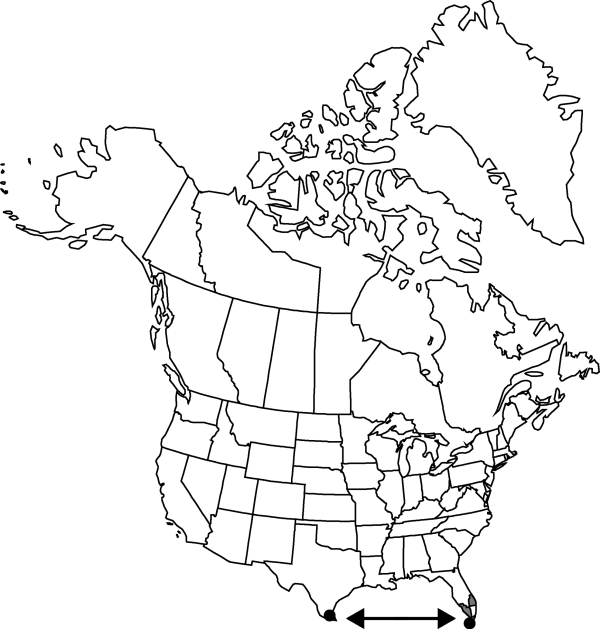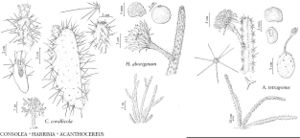Difference between revisions of "Acanthocereus tetragonus"
Succulenta (Netherlands) 20: 165. 1938.
FNA>Volume Importer |
FNA>Volume Importer |
(No difference)
| |
Revision as of 20:00, 24 September 2019
Shrubs, clambering or arching-reclining, branched near base, sometimes with well-developed trunks. Stems dark green, growing to 200 cm per season; ribs from base to rib crest 3–5 cm, less than 1 cm thick. Spines abruptly thickened at base, extremely variable. Flowers 14–20 cm; flower tube 8–15 cm, ± tuberculate, areoles few, usually 1 spine per areole; outer tepals narrowly lanceolate to linear, 3.5–4 cm, apex acuminate; inner tepals broadly linear, 3.5–4.5 cm, apex acuminate; ovary with small scales and usually 3–5 diverging spines per areole. Fruits bright red, ovoid to oblong, 30–80(–100) mm, slightly tuberculate, shiny, edible, sweet. 2n = 22 [as A. pentagonus (Linnaeus) Britton & Rose].
Phenology: Flowering mid summer–fall.
Habitat: Sandy soils of dense thickets, hammocks, bottomlands of coastal areas
Elevation: 0-10 m
Distribution

Fla., Tex., Mexico, West Indies, Central America, n South America, introduced Pacific Islands (Hawaii).
Discussion
The Florida populations have been called Acanthocereus floridanus but now appear to be the northernmost variants of the highly variable species A. tetragonus, which occurs throughout the Caribbean region (D. R. Hunt 1991).
The common name “triangle cactus” refers to the mature stems in cross section; the epithet “tetragonus” alludes to the juvenile stems, which often have four angles.
Selected References
None.
